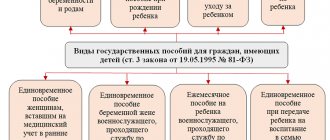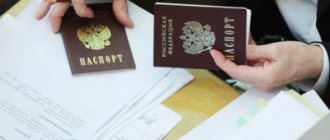How and why to make a will
Technically, making a will consists of two stages. This is the drafting of the text of the will and the certification of the will.
The safest thing to do for both the first and second stages is to use the services of a notary. All you need in this case is your personal presence and a document proving your identity. For Russian citizens, this is usually a passport of a citizen of the Russian Federation. You can either make an appointment with a notary or call him to your home. If the will is certified at the notary's office, everything can be done immediately. If at home, the notary either takes a computer with a printer with him, or may come twice: the first time to check the status and discuss the wishes of the testator, after which he must return to the office, draw up the text of the will and come to the house again for certification.
At the reception, the notary will have to check the legal capacity of the testator and the legality of the terms of the will. The will itself can be written by you with your own hand or printed by a notary under your dictation. In any case, the text of the will must correspond to your actual intentions and the law, and the provisions of the will must be stated clearly and unambiguously, eliminating the possibility of double interpretation. Before you sign the will, the notary must read the text of the will out loud to you and only then you must sign. If the testator has physical disabilities, serious illness or illiteracy, the text of the will can be signed by an executor. This must necessarily take place in the presence of both the testator and the notary.
If you do not want anyone to know about the contents of your will, you can choose a closed form of will. That is, you can write it yourself and personally submit it to a notary for certification in a sealed envelope.
The will is certified by a notary in two copies: one is given to you, the second is kept by the notary. In addition, now, as a rule, notaries make video recordings when certifying a will, and this video recording is also kept by the notary. In addition, data on the completed will are entered into the unified notary information system. If the will is lost, this allows the heirs to restore the text of the will. If a closed will is certified, then the text of the will cannot be restored in case of loss. Only the sealed storage envelope is certified.
Documents for registration of a will
A will is understood as the documented will of the owner to dispose of property in the event of his death. It is formalized in writing.
You can make a will as follows:
- at a notary's office;
- from persons who replace a notary;
- without the participation of a notary (in an emergency).
When leaving a will, the testator must be present in person. The law prohibits the execution of a last will through a representative.
Let's look at what documents you need to have with you.
At the notary
The main documents when registering a will through a notary are:
- for a citizen of the Russian Federation - a civil passport;
- for a foreign citizen - a passport of the country of his citizenship;
If you do not have a passport, you can use other identification documents. Among them:
- military ID or military personnel identification card - for persons who are undergoing military service at the time of application;
- seafarer's passport - for citizens who at the time of application are working on Russian ships sailing abroad;
- other identification documents.
Unfortunately, in 2021 there is no clear concept of an “identity document”. Currently, the State Duma is considering bill No. 845287-7, which should specify the names of such documents, the procedure for obtaining them and the requirements for execution. After its acceptance, an exact list of documents will appear that can be presented to the notary for registration of the will.
The notary has no right to demand, but the testator may additionally present:
- A certificate stating that he is not registered with a drug treatment or psychiatric dispensary. Certificates are necessary so that heirs have less chance of challenging the will. Unspoken statistics show that every will that does not meet the interests of the relatives of the deceased is challenged by them in court. Moreover, a post-mortem examination of the testator’s mental health often confirms doubts about the owner’s adequate decision. In order for the posthumous will of the deceased to be carried out, it is advisable to obtain certificates from the dispensary at the place of registration.
- Copies of passports of heirs. If the testator wants to transfer property to several recipients, it is necessary to specify them. The instructions “my daughter, my son” can lead to errors in interpretation if there are 2 or more children of the same sex. It is advisable to indicate your full name. heir and his passport details.
For persons replacing a notary
Not only a notary, but also the following authorized persons can certify the expression of will:
- captain of the ship;
- commander of a military unit;
- expedition leader;
- warden;
- head physician of the hospital;
- head or specialist of the local administration, if there is no notary in the locality.
This option is possible if the testator, for health reasons or due to the remoteness of the location, cannot visit the notary’s office. A citizen must have a document proving his identity with him.
The authorized person must, as soon as possible, send the will to the notary at the place of registration of the testator.
In an emergency
When making a will in an emergency, the document is drawn up without a notary. Therefore, the document is certified by the signatures of 2 witnesses. For the document to be valid, the witnesses must be literate, Russian-speaking, of legal age, and legally capable.
To enter into an inheritance, the document will have to be certified in court. That is, the heirs must go to court and recognize the situation in which the will was executed as made under emergency conditions.
The court may invite witnesses to the trial. To avoid confusion, it is advisable to indicate in the will not only your full name. each witness, but also his passport details. To do this, when registering a declaration of will, it is advisable that the witnesses also have a passport with them.
However, the list of documents when drawing up a will in an emergency is advisory in nature. If the testator and the parties do not have passports, the document can be drawn up without them.
Citizen under 18 years of age
A will can only be drawn up by a citizen who has reached the age of majority. An exception is provided for persons who received full legal capacity ahead of schedule.
Methodological recommendations for notaries from 2004 provide for the possibility of drawing up a will by a citizen who has not reached 18 years of age, but is endowed with full legal capacity (emancipation).
Emancipation is possible if a minor over the age of 16:
- works under an employment contract;
- carries out business activities;
- entered into an official marriage.
To obtain full legal capacity, a minor employed under a contract or engaged in entrepreneurial activity must:
- together with the parents, contact the guardianship department to obtain a resolution from the district administration;
- go to court to obtain a court decision on emancipation (if parents or other legal representatives do not give consent).
Accordingly, a testator aged 16 to 18 years, in addition to a passport, must present:
- marriage certificate;
- resolution of the district administration;
- the court's decision.
If a testator between the ages of 16 and 18 cannot confirm his legal capacity, the notary will refuse to certify the expression of will.
With a manhandle
The executor is the person who signs the will instead of the owner in the presence of the testator and the notary. His signature is not the same as that of the representative. He performs technical work, since the testator himself cannot do this.
The involvement of a physical assault specialist is permitted in the following cases:
- the testator is illiterate;
- the testator has a physical disability (no fingers or hands);
- the owner of the property is ill and unable to sign the document.
If the document is signed by the person who signed the document, a note to this effect is made in the will. Additionally, when registering a will, the notary must submit:
- civil passport of the attacker;
- documents confirming the grounds for involving a third party (if any).
For a closed will
The filing of a closed will with a notary is carried out in the presence of two witnesses. They must carry civil passports to prove their age.
Will for a share in an apartment
A home owner who wishes to bequeath his property to his heirs may be the owner of one or more shares in the apartment. In another case, he has the right to distribute parts of the residential premises to several recipients. After his death, the citizens indicated in the will will formalize the inheritance and become the owners of these shares. The consent of the other owners is not required in this situation. The procedure for drawing up a will for a share in an apartment with a notary is no different from the mechanism for drawing up a will for an entire apartment.
What is the best way to register an apartment, a gift or a will?
In the Russian Federation, the practice has become widespread when, instead of bequeathing an apartment, a transaction is drawn up to donate it. Both methods of disposing of property allow you to transfer the apartment into the ownership of a relative or other person free of charge.
To figure out what is better to draw up - a will or a deed of gift for an apartment, you should conduct a comparative analysis of these methods of alienation of property. Let's look at what their differences are:
- A will, as noted above, is a unilateral transaction expressing only the will of the testator. He is not obliged to coordinate his decision with anyone. Donation is a bilateral agreement concluded between the donor and the recipient (Part 1 of Article 572 of the Civil Code of the Russian Federation). It equally expresses the will of both its participants.
- According to the will, the heir will receive the apartment only after the death of the testator. Under a gift agreement, living space can become the property of the donee during the life of the donor. Moreover, he can become the owner of the apartment immediately after signing the deal, if this is provided for by its terms.
- The testator, at his own discretion, can revoke a previously prepared will if he so desires. He is not obliged to explain his decision to anyone. Cancellation of a gift agreement cannot be done so easily.
- The testator does not risk losing his home, because the inheritance will be opened only after his death. According to the gift, the apartment no longer belongs to the donor after it becomes the property of the donee.
- Part of the bequeathed apartment may be claimed by persons who are entitled to an obligatory share in the inheritance. The donated housing will belong only to the citizen who received it as a gift.
- Often, after the death of the testator, relatives take actions aimed at challenging the will. It will be more difficult to challenge the deed of gift.
There is no single recommendation for how to transfer the rights to an apartment to a relative. Each situation requires separate consideration. In some cases, it is better to bequeath an apartment, and in others, to transfer it under a gift agreement.
Who can bequeath an apartment to whom?
Any citizen who owns real estate and meets the requirements has the right to be a testator:
- the person has not been declared legally incompetent by a court decision;
- at the time of contacting the notary he was 18 years old;
- cases of drawing up a will from the age of 16 are not excluded if the teenager is emancipated (engaged in entrepreneurial activity, married, signed an employment contract);
- has an identity card (passport).
The applicant expresses his will based on his own desires, so his heirs are often not only relatives, but also people who are not related to him (friends, acquaintances, colleagues).
In accordance with Article 1116 of the Civil Code, the following persons have the right to act as recipients of inheritance::
- citizens who are related or do not have this status (including children conceived during the life of the will maker, or born alive after the start of the inheritance period);
- organizations operating at the time of death;
- state, subjects;
- municipal districts;
- foreign states and foreign companies.
There are categories of people defined by law who cannot be excluded from inheritance:
- children under 18 years of age;
- minors who have disabilities (limited due to health reasons);
- parents who are unable to work (retired, disabled);
- spouse of the deceased;
- people who were dependent on him.
Their right to inheritance is conditioned by their inability to support and provide for themselves.
Who can be named as an heir?
The law gives almost complete freedom of action to the testator. He can assign his property to relatives, third parties, an enterprise or the state (Article 1119 of the Civil Code of the Russian Federation).
The will can specify 1 or more claimants to the testator's assets. Additionally, it is possible to display the size of the share of each of them.
The testator may not indicate heirs, but transfer his property to the inheritance fund for subsequent disposal at his request. The foundation is registered by a notary after the opening of the inheritance. The share of property determined by the testator is transferred to the foundation.
Thus, a citizen can provide for the disposal of his property:
- monthly payments to relatives;
- investments in shares and other securities;
- charitable payments;
- other actions at the discretion of the owner.
The only limitation is that the testator cannot deprive socially vulnerable citizens of a share of the inheritance.
The rule on compulsory share of inheritance applies to the following citizens:
- minor children;
- disabled children, parents, spouse;
- disabled dependents of a deceased citizen.
If at the time of the owner’s death such a person is identified, he is entitled to at least half of the share that relatives inherit within the framework of the law (Article 1149 of the Civil Code of the Russian Federation).
Important! Deprivation of these citizens of a share of property may become grounds for declaring the order invalid.
The obligatory heir must choose between payments from the inheritance fund and the obligatory share. However, the share cannot exceed the amount for the maintenance of a citizen in order to maintain the standard of living that was available to him during the life of the testator.
Additional information
Along with the mandatory documents that we listed above, there are also additional documents. These include a medical certificate . As a rule, if a person is elderly or undergoing treatment, then the notary may suspect that the person is not fully aware of his actions.
And it is possible that the will drawn up will be incorrect, since the testator’s mind was temporarily clouded. That is why in some cases the notary asks to confirm his condition with an appropriate medical certificate. In order to receive it, you need to undergo several specialists, including a neurologist, psychiatrist and therapist.
When accepting a patient, doctors give their opinion on the patient's condition . If it is satisfactory and there is no reason to doubt that the person is aware of the actions being taken, then the notary will work with this citizen and draw up a will on his behalf.
Otherwise, if the certificate was not issued, the notary concludes that the person is insane, which means he cannot be held accountable for his actions. In this way, the notary tries to protect the heir from the fact that if third parties believe that the testator was insane at the time of drawing up the act, they will easily challenge the rights of persons to property in court, which will subsequently turn out not to be the most beneficial for those mentioned in the will (about You can find out how a will is contested here).
Elderly people
If a person is elderly, then in addition to a medical certificate, it is advisable to provide him with a pension certificate. The fact is that after the death of a person, unscrupulous heirs continue to receive a pension for the deceased. In order to warn citizens against this, the name of the pension certificate is indicated.
Important! If an elderly person was disabled, or was affiliated with any other social group, then the ID number will help future heirs receive payment and compensation.
If a share in an apartment is bequeathed
The will of not the whole apartment, but only its share contains some nuances. For example, you must obtain consent from other apartment owners-holders that you are transferring this property as an inheritance estate.
The fact is that other owners have the primary right to purchase part of the real estate from you. Therefore, if they are outraged against your transfer of real estate by inheritance, and go to court, it is likely that the court will oblige you to sell them a share for the price indicated by the appraisers
To prevent this from happening, talk in advance with other owners and study their consent to transfer the share by inheritance in relation to another person.
Some even neglect such requirements and do not ask the consent of other shareholders. In this case, if 3 years have passed since the death of the person, and no one has made any demands for the cancellation of the will or its revision in court due to violation of the rights of third parties, then this means that the heir can no longer be afraid that someone will claim its rights to the share.
What is a will
A will is a written document:
- drawn up by the testator in case of death;
- determining the composition of the heirs;
- establishing a list of property that is subject to inheritance;
- determining the shares of recipients (at the request of the owner).
Important! A will is a one-sided transaction. The consent of other persons when drawing up the document is not required.
The order is not valid during the life of the testator. He can repeatedly change or cancel the administrative document. However, after the death of a citizen, the will is not subject to adjustments.
It can only be declared invalid by a court decision. For example, if a document violates the rights of other persons or is drawn up by an incapacitated citizen.
After the death of the testator, the order regulates property relations between the heirs. The object of regulation is the property of a deceased person.
Correct drafting of a will for an apartment
The procedure for registering a will begins with the will-maker contacting a notary at his place of residence . He has the right to prepare the document before this moment so that a specialist can study it, assess its legality and certify it with his signature and seal.
The will is drawn up by hand or in print. It contains the following information :
- date (in words) and place of writing (city, locality);
- personal data of the applicant - his last name, first name, patronymic, date of birth, passport information (series and number, when and by whom it was issued);
- address of the apartment, which is inherited;
- personal data of the recipient - his last name, first name, patronymic, date of birth, passport information (series and number, when and by whom it was issued);
- additional provisions (special conditions for registering an inheritance, actions if the recipient refuses housing, methods of distributing property between legal heirs if necessary);
- if there are witnesses (in the case of a closed will), their surnames, first names, patronymics, dates of birth, and passport details are indicated;
- a note indicating that the will-maker has read Article 1149 of the Civil Code;
- number of sheets and copies, notification of the fact of transfer of one of them to the notary;
- compiler's signature.
If the owner cannot sign on his own, a person representing the interests of the applicant, acting under a notarized power of attorney, has the right to do so instead.
Rules for drawing up a testamentary disposition:
- A document drawn up in writing and bearing the seal of a notary has legal force (an oral version or agreement is excluded).
- A person’s will is stated personally by him or, if this is not possible, by an employee of a notary’s office, but upon completion it is read aloud.
- Persons who are not interested in this procedure are invited as witnesses (relatives, friends, acquaintances do not have the right to perform this function). They are not incapacitated by a court decision; they are fully aware and understand the full meaning and essence of the contents of the document.
- Unfinished real estate objects are also included in the inheritance estate; the applicant can dispose of them on the same basis as real estate available in Rosreestr.
- Notaries or their close relatives cannot be heirs.
The testator has complete freedom to express his will, because is the owner of the property. After drawing up the document, he can adjust its provisions, delete them or add new clauses.
Video: Advice from a notary. How to draw up a will?
Invalidation of a will
A will may be declared invalid in whole or in part, depending on the violations identified.
Reasons:
- violation of the rights of heirs;
- display of conditions that violate the constitutional rights of participants;
- introducing false information into the content;
- violation of the procedure and form of registration;
- the presence of errors that significantly affect the understanding of the will;
- execution of a document by a person who does not have the right to draw it up;
- compulsion to register.
The will is declared invalid in court. An interested person who claims to acquire inherited property can file a claim in court.










